Travel Medical

How quickly can I get reimbursed by my travel insurance company ?
The time it takes to get reimbursed by your travel insurance company depends on the type of claim you are filing and the policies of your insurance provider. Emergency medical claims can be processed within a few days to a week, while non-medical claims can take longer depending on the nature of the claim and the required documentation. To expedite the process, it's important to read your policy carefully, keep all receipts and documentation, contact your travel insurance company promptly, submit complete and accurate information, and follow up on your claim if necessary. By following these tips, you can help ensure a smoother and faster reimbursement experience.

How can women ensure they have access to medical care and support in case of illness or injury while traveling ?
How Can Women Ensure They Have Access to Medical Care and Support in Case of Illness or Injury While Traveling? Traveling can be an exciting adventure, but it's important to ensure that you have access to medical care and support in case of illness or injury. Here are some tips for women to ensure they have access to medical care while traveling: 1. Research Before You Go: Before embarking on your journey, research the local healthcare system and facilities. Look for hospitals, clinics, and pharmacies in the area you will be visiting. Make a list of emergency numbers and keep them with you at all times. 2. Get Travel Insurance: Consider purchasing travel insurance that includes medical coverage. This will give you peace of mind knowing that you are covered in case of an unexpected illness or injury. 3. Pack a First Aid Kit: Pack a first aid kit with essential items such as bandages, antiseptic wipes, pain relievers, and any prescription medications you may need. It's also a good idea to bring along copies of your prescriptions in case you need to refill them while traveling. 4. Stay Healthy: Take steps to stay healthy while traveling. Wash your hands frequently, eat nutritious meals, drink plenty of water, and get enough sleep. Avoid risky behaviors such as excessive alcohol consumption or participating in dangerous activities without proper safety gear. 5. Seek Help When Needed: If you do become ill or injured while traveling, don't hesitate to seek medical attention. Many countries have English-speaking doctors and nurses who can provide assistance. If you are unable to communicate effectively with local healthcare providers, consider using translation services or seeking out expatriate communities for support. In conclusion, ensuring access to medical care and support while traveling is crucial for women's health and safety. By doing your research beforehand, getting travel insurance, packing a first aid kit, staying healthy, and seeking help when needed, you can enjoy your travels with peace of mind knowing that you are prepared for any potential emergencies.

What are some essential travel safety tips for international tourists ?
Traveling to a foreign country can be an exciting adventure, but it's important to prioritize safety during your journey. Here are some essential travel safety tips for international tourists: ## Research Your Destination Before embarking on your trip, research the destination thoroughly. Familiarize yourself with local customs, laws, and cultural norms. This will help you avoid any misunderstandings or unintentional offenses that could put you in harm's way. ### Learn Basic Phrases in the Local Language Knowing how to say simple phrases like "hello," "goodbye," "thank you," and "I don't understand" in the local language can go a long way in helping you communicate with locals and navigate your way around. ### Check the Weather Forecast Be prepared for any weather conditions by checking the forecast before you leave. Pack appropriate clothing and gear to ensure your comfort and safety throughout your trip. ## Stay Informed About Safety Concerns Stay up-to-date on any safety concerns or travel warnings related to your destination. The U.S. Department of State maintains a website with current information on safety issues and advisories for travelers. ### Register With Your Embassy or Consulate Register your travel plans with your embassy or consulate so they can contact you in case of an emergency or natural disaster. This is especially important if you plan to visit remote areas where communication might be limited. ## Be Cautious With Your Belongings When traveling abroad, it's crucial to take precautions to protect your belongings from theft or loss. Here are some tips to keep your valuables safe: ### Keep Your Valuables Close at Hand Carry only what you need when sightseeing or exploring new places. Keep your passport, cash, credit cards, and other valuables secure in a money belt or hidden pocket. ### Use Hotel Safes Wisely Hotel safes are convenient for storing valuable items while you're out and about. However, be aware that not all hotel safes are foolproof. Some may have vulnerabilities that could allow thieves to access your belongings. Always exercise caution when using hotel safes and consider bringing along a portable lock for added security. ### Be Mindful of Your Surroundings Stay alert and aware of your surroundings at all times. Avoid displaying expensive jewelry or electronics in public places, as these items can attract unwanted attention from pickpockets and thieves. If possible, try to blend in with the local crowd by dressing conservatively and avoiding flashy accessories. ## Follow Local Laws and Customs Respecting local laws and customs is essential for staying safe while traveling abroad. Here are some tips to help you navigate this aspect of international travel: ### Obey Local Laws Familiarize yourself with the legal system and laws of the country you're visiting. This includes understanding the penalties for breaking the law, which can vary widely depending on the country. Remember that what might be legal in your home country could be illegal elsewhere. ### Respect Local Customs Be mindful of local customs and traditions when interacting with locals. Dress appropriately for religious sites and respect their rules regarding photography and behavior. Additionally, be aware of social norms regarding physical contact (such as handshakes or hugs) and follow them accordingly. ## Seek Medical Attention When Needed If you become ill or injured during your trip, seek medical attention promptly. Here are some tips to help you stay healthy while traveling: ### Pack a First Aid Kit Bring a basic first aid kit with essential items such as bandages, antiseptic wipes, pain relievers, and any prescription medications you might need. This will help you handle minor injuries and illnesses without having to search for medical supplies in an unfamiliar place. ### Know Where to Go for Medical Help Research nearby hospitals and clinics before you leave home so you know where to go if you need medical assistance during your trip. It's also a good idea to purchase travel insurance that includes coverage for medical emergencies.
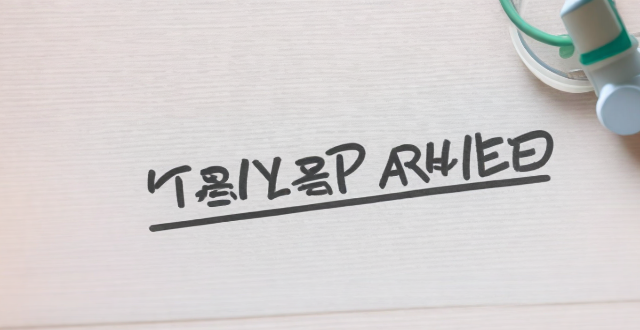
How can I be prepared for medical emergencies while traveling abroad ?
This text provides advice on how to be prepared for medical emergencies while traveling abroad. It suggests researching healthcare options, getting travel insurance, packing a travel medicine kit, learning basic first aid, knowing emergency numbers, staying healthy, and keeping important information handy.

How much does travel insurance usually cost ?
The cost of travel insurance can vary greatly depending on factors such as destination, duration of trip, coverage level, and individual characteristics like age and health condition. To find the best policy for your needs, compare policies from different insurers, look for discounts, consider annual plans if you travel frequently, and review exclusions and limitations carefully.
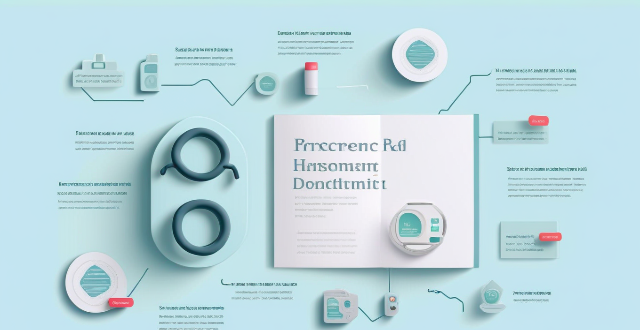
Are pre-existing medical conditions covered by travel insurance ?
Travel insurance coverage for pre-existing medical conditions varies by policy and provider. Factors influencing coverage include the type of policy, deductibles and limits, waiting periods, and disclosure of information. Some policies offer limited or comprehensive coverage for these conditions, while others exclude them altogether. It is crucial to research different policies and consult with an insurance professional to find the best coverage for your individual needs.

What does a typical travel insurance cover ?
Travel insurance typically covers medical expenses, trip cancellation and interruption, baggage loss and delay, accidental death and dismemberment, and emergency assistance services. Optional extras may include coverage for sports and adventure activities, rental car damage, and travel delay. It's important to consider the specific needs of your trip when selecting a policy and to carefully read the details to understand coverage limits and exclusions.
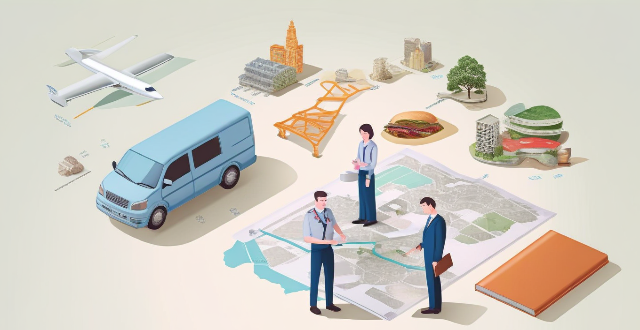
Is there an age limit for buying travel insurance ?
Is there an age limit for buying travel insurance? Most providers do not impose any restrictions based on age, but some policies may have specific requirements or limitations regarding age. When purchasing travel insurance, consider factors such as coverage options, pre-existing medical conditions, adventure sports coverage, cost, and reputation.

Can I buy travel insurance for someone else, like my parents or children ?
The article discusses the possibility of buying travel insurance for someone else, such as family members. It highlights the importance of understanding the specific requirements and restrictions associated with this process. The text provides a step-by-step guide on how to purchase travel insurance for someone else, emphasizing the need to choose the right policy that fits the insured person's needs and provides adequate coverage for their trip.
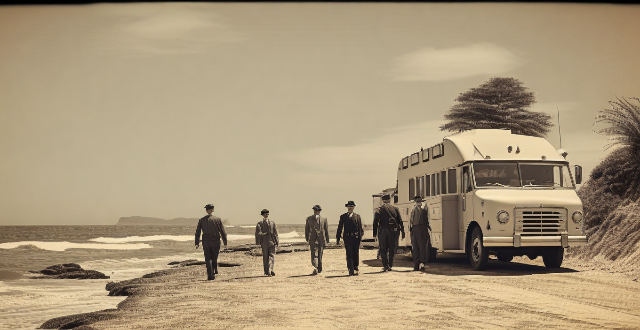
Will travel insurance cover me if I get sick while abroad ?
Travel insurance can cover travelers if they get sick while abroad, but coverage depends on the policy's terms and conditions. Factors to consider include coverage limit, deductible, pre-existing conditions, exclusions, emergency evacuation/repatriation, and claims process. When choosing a travel insurance policy, assess your needs, compare policies, read reviews, purchase early, and consult a professional if necessary.

Is it worth buying travel insurance for domestic trips ?
The article discusses the importance of travel insurance for domestic trips. It suggests that while it may not always be necessary, it can provide an additional layer of protection and peace of mind, especially for those embarking on adventurous or expensive trips. The article provides a list of key points to consider when deciding whether to purchase travel insurance, including risk assessment, coverage details, cost analysis, personal circumstances, and peace of mind. It also lists the benefits of travel insurance for domestic trips, such as medical coverage, trip interruption/cancellation, baggage loss/theft, emergency evacuation, and accidental death and dismemberment. The article concludes by suggesting that the decision to buy travel insurance depends on various factors such as the nature of the journey, existing coverage, and personal preferences.
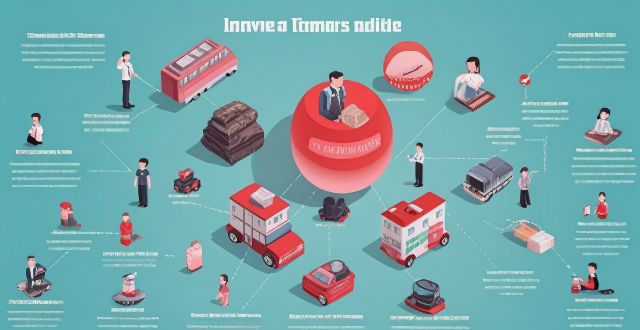
How do I compare different travel insurance policies ?
The article provides a comprehensive guide on how to effectively compare different travel insurance policies. It outlines four key steps: determining needs, checking coverage and benefits, comparing prices and deductibles, and reading reviews and asking for recommendations. The article emphasizes the importance of considering factors such as destination, duration, activities, health, and budget when determining needs. It also highlights the importance of looking for policies that provide comprehensive coverage for medical expenses, trip cancellation and interruption, baggage loss and delay, emergency evacuation and repatriation, and travel assistance services. Finally, it suggests comparing prices and deductibles and seeking out reviews and recommendations from others to make an informed decision. Overall, the article offers valuable insights into the process of selecting the right travel insurance policy.
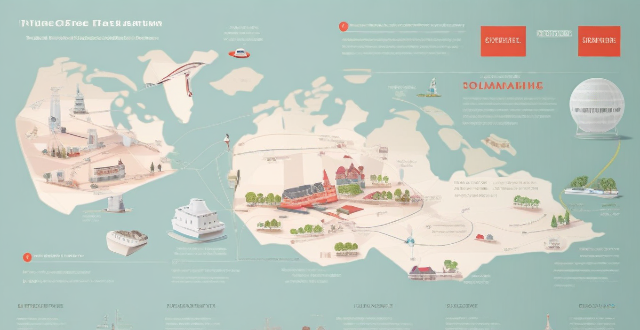
What is the best travel insurance for international trips ?
When it comes to choosing the best travel insurance for international trips, there are several factors to consider. Look for a policy that covers medical expenses, trip cancellation/interruption, baggage and personal effects, emergency evacuation and repatriation, travel delay and missed connection, and identity theft protection. Consider the deductibles and limits of each coverage type within the policy. Pay attention to exclusions and limitations such as pre-existing conditions, adventure sports and activities, and geographical limitations. Look for a reputable insurer with excellent customer service ratings and a smooth claims process. Compare prices across different insurers and policies to find one that fits your budget without compromising on essential coverage. By taking into account these key points, you can choose a policy that provides adequate protection and peace of mind for your next adventure abroad.

How long before my trip should I buy travel insurance ?
Travel insurance is a crucial component of any trip, offering coverage for unexpected events such as medical emergencies, trip cancellations, and lost luggage. The best time to buy travel insurance depends on various factors, including the timing of your purchase, trip details, personal situation, and research. Timing matters when buying travel insurance. It's recommended to buy early for peace of mind, better pricing, and more options. However, waiting too long can increase the risk of forgetting, limit options, and create coverage gaps. Trip details such as destination, length of stay, and activities should also be considered. Personal situation factors like health status, financial protection, and travel companions' needs should also influence the timing of your purchase. Practical steps include researching policies, comparing online, reading reviews, consulting a broker, completing an online application, confirming details, and keeping records. Ideally, travel insurance should be purchased at least a few weeks before the trip to ensure adequate coverage and avoid last-minute stressors.

Can I purchase travel insurance after booking my trip ?
The article discusses the possibility of purchasing travel insurance after booking a trip. It emphasizes that buying travel insurance early provides more comprehensive coverage, peace of mind, and potentially better prices. To purchase travel insurance after booking, one should research different policies, contact their travel agent or insurance company, provide relevant information, read the policy details carefully, and keep documentation safe. The article concludes that buying travel insurance early is generally recommended for optimal coverage and peace of mind during travels.

How do I prepare a travel first aid kit for my next trip ?
When preparing for your next adventure, it's essential to pack a travel first aid kit. This will ensure that you are prepared for any unexpected injuries or illnesses that may occur while away from home. Here are some steps to follow when creating your own travel first aid kit: 1. Choose the right bag or container that is durable, compact, and easy to carry. A waterproof bag with multiple compartments and pockets is ideal as it allows for efficient organization of supplies. 2. Pack essential medical supplies such as bandages, antiseptic wipes, gauze pads, adhesive tape, and scissors. These items are crucial for treating cuts, scrapes, and other minor injuries. Include pain relievers, allergy medication, and motion sickness pills. 3. If taking regular medications, bring enough to last throughout the trip. Over-the-counter drugs like antacids, laxatives, and anti-diarrheal pills should also be packed, along with any prescription medications needed. 4. Depending on the destination and activities planned, specialized items may be necessary. For example, insect repellent, sunscreen, and blister kits are useful for hiking or camping trips. Anti-malarial medication and water purification tablets are important for tropical climates. 5. Customize the travel first aid kit based on individual needs. If allergies or chronic conditions exist, include appropriate medications and supplies. Don't forget to pack a small first aid manual or guidebook for reference in case of an emergency.

How can I stay safe during adventure travel activities ?
Adventure travel activities can be exciting and thrilling, but they also come with certain risks. To ensure your safety during these activities, it's important to take necessary precautions and follow some basic guidelines. Here are some tips on how to stay safe during adventure travel activities: 1. Research and plan ahead before embarking on any adventure travel activity. Check the weather conditions, terrain, and potential hazards. 2. Choose reputable operators for your adventure travel activity. Look for operators that are licensed, insured, and adhere to safety standards. 3. Follow safety guidelines provided by the operator during the activity. Wear protective gear such as helmets, harnesses, or life jackets. 4. Make sure you are physically fit and healthy enough to participate in the adventure travel activity. If you have any pre-existing medical conditions or injuries, consult with a doctor beforehand. 5. Pack essential gear and supplies for the adventure travel activity, including appropriate clothing, footwear, sunscreen, insect repellent, and first aid kit. 6. Stay alert and attentive during the adventure travel activity. Keep an eye out for potential hazards such as uneven terrain, loose rocks, or changing weather conditions. 7. Use common sense and trust your instincts during the adventure travel activity. If something feels too risky or dangerous, don't hesitate to back out or seek assistance from the guides or other participants. By following these tips, you can minimize the risks associated with adventure travel activities and enjoy a safe and memorable experience.

How can I treat a burn before seeking medical attention ?
Burns can be painful and potentially dangerous, especiallyBurns can be painful and potentially dangerous, especially cover a large area of the It's important to seek medical attention as soon as possible for any burn that is serious or covers a significant portion of your body. However, there are steps you can take to treat a burn before getting medical help. Here's what you should do: - Cool the Burn: Run cool (not cold) water over the burn for at least 10 minutes. Avoid putting ice directly on the burn. - Remove Heat Source: If the burn is due to contact with a hot object like a stove or iron, carefully remove the heat source without putting yourself at risk. - Remove Constricting Items: If any jewelry or clothing is near the burned area and might constrict as swelling occurs, remove it if possible without causing further injury. - Cover the Burn: After cooling the burn, gently cover it with a clean cloth or sterile dressing to protect it from infection and further injury. - Take Pain Relief: Over-the-counter pain relievers like ibuprofen or acetaminophen can help manage pain. Follow the instructions on the packaging and consult a healthcare professional if unsure. - Stay Hydrated: Drink plenty of fluids to prevent dehydration, which can occur more quickly when your skin is damaged. While the above steps can help with minor burns, it's crucial to seek medical attention for more serious burns. You should see a doctor for burns that are deeper than the top layer of skin (second-degree burns), cover an area larger than your hand, are on the face, hands, feet, groin, buttocks, or major joints, are caused by electricity, radiation, or chemicals, or show signs of infection such as increased redness, pain, or fever. Remember, these guidelines are for initial first aid and should never replace professional medical advice. Always seek medical attention for serious burns as soon as possible.
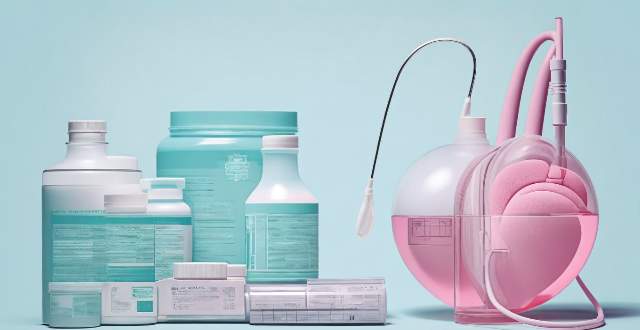
How can I customize my emergency kit for specific medical needs ?
Customizing an emergency kit for specific medical needs is crucial for individuals with health conditions. To tailor your kit, assess your medical needs, list down medications, and identify potential complications. Incorporate specialized equipment like diabetes management tools or heart condition medication. Include general first aid supplies, information cards, and instruction manuals. Don't forget communication tools and personal comfort items to alleviate stress during emergencies. Being prepared can significantly impact managing your health in disaster situations.

Is there a difference between PPE for medical use versus industrial use ?
The text discusses the differences between personal protective equipment (PPE) for medical use and industrial use. It explains that these differences mainly concern the level of protection required, the type of hazards encountered, and the specific features of the equipment designed to address those hazards. Medical professionals often deal with infectious diseases and thus require PPE that can protect them from pathogens like viruses and bacteria. This typically involves higher levels of protection, such as respiratory protection with N95 respirators or equivalent, which filter out airborne particles, and blood-borne pathogen protection with gloves, gowns, and face shields or goggles to prevent contact with blood and bodily fluids. Industrial workers face different types of hazards, including chemical exposure, physical injuries, and environmental factors. Their PPE tends to focus on chemical protection with protective suits, gloves, and boots made from materials resistant to specific chemicals or solvents, and physical protection with hard hats, safety glasses, and high-visibility clothing to prevent injuries from machinery or construction sites. The primary hazard in a medical setting is biological agents, such as viruses, bacteria, and other pathogens that may be present in patients' blood or other bodily fluids. Workers in industrial settings face a variety of hazards, including but not limited to chemical exposure from handling toxic substances, physical dangers from heavy machinery and equipment operation, and environmental risks such as extreme temperatures or noise pollution. PPE for medical use often includes features like fluid resistance with materials that are impermeable to liquids to prevent contamination, antimicrobial treatment with some PPE items having an antimicrobial coating to reduce the growth of microorganisms, and compatibility with other medical equipment designed to be used in conjunction with other medical tools and devices without interference. PPE for industrial use emphasizes features like durability with materials that can withstand harsh conditions and repeated use, comfort and mobility often lighter and more flexible materials to allow for ease of movement over long periods, and specialized functionality such as gloves having enhanced grip or shoes having steel toes for added protection against physical impacts.

Can I extend my travel insurance coverage if I extend my trip ?
Topic: Extending Travel Insurance Coverage Summary: If you extend your trip, you may need to extend your travel insurance coverage. This depends on your policy's terms and the flexibility of your insurer. To extend coverage, contact your provider, provide details about your extended trip, pay an additional premium, and confirm the extension in writing. Consider timing, potential coverage changes, and alternatives if necessary.
![Are there any travel warnings or advisories that I should be aware of before planning a trip to [insert destination] ?](/imgs/2f8b31ee-f62a-46e3-8828-37a4af062f9b.png)
Are there any travel warnings or advisories that I should be aware of before planning a trip to [insert destination] ?
Before planning a trip to [insert destination], itBefore planning a trip to [insert destination], it of any travel warnings or it is important to be aware of any travel warnings or advisories that may affect your safety and well-being. Here are some steps you can take to ensure a safe and enjoyable trip: 1. Check the government website of the country you plan to visit for an overview of the current situation and any travel warnings or advisories that have been issued. 2. Research local news sources in the destination country to get a better understanding of the current situation and any potential risks. 3. Contact your embassy or consulate directly if you have any specific concerns about traveling to the destination country. 4. Consider purchasing travel insurance to provide coverage for unexpected events such as medical emergencies, trip cancellations, or lost luggage. By following these steps, you can ensure a safe and enjoyable trip while minimizing any potential risks.
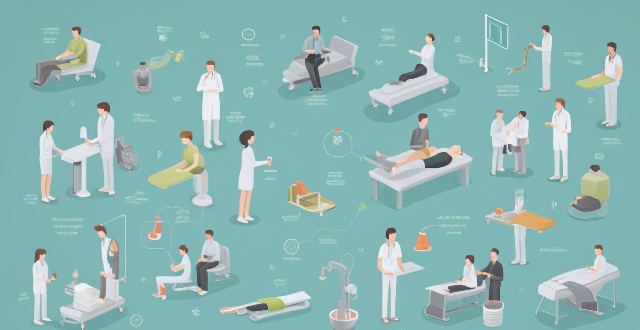
In what ways can virtual reality be utilized for medical training and therapy ?
Virtual reality is revolutionizing medical training and therapy by providing immersive, interactive experiences that simulate real-world scenarios. In medical training, VR offers hands-on practice in a safe environment, multisensory learning experiences, interactive anatomy education, and tools for surgical planning and collaboration. In therapy, it is used for pain management, motor skills rehabilitation, cognitive rehabilitation, mental health treatment, specialized interventions like ASD therapy, and neurorehabilitation. The potential of virtual reality in healthcare is vast, with ongoing technological advancements expected to bring further innovations in this field.

What are the benefits and challenges of using drones for medical supply delivery ?
**Benefits of Using Drones for Medical Supply Delivery:** - **Increased Efficiency:** Drones can cover large distances quickly and bypass obstacles. - **Accessibility to Remote Areas:** Ideal for reaching rural or disaster-affected regions. - **Cost Savings:** Lower manpower and operational costs compared to traditional methods. - **Improved Safety:** Eliminates human errors and operates in hazardous conditions. - **Real-Time Tracking:** Ensures accountability and peace of mind for senders and recipients. **Challenges of Using Drones for Medical Supply Delivery:** - **Regulatory Issues:** Strict regulations and complex permit processes limit drone operations. - **Technical Constraints:** Limited load capacities, battery life, and weather conditions affect reliability. - **Security Concerns:** Risks of interception and tampering with cargoes. - **Public Perception:** Addressing privacy concerns and gaining public acceptance is essential. - **Infrastructure Development:** Significant investment required for support infrastructure.

What are the benefits of participating in adventure travel activities ?
Adventure travel activities offer various benefits that positively impact physical, mental, and emotional well-being. These activities improve cardiovascular fitness, muscle strength, and weight management. They also reduce stress, boost self-confidence, and enhance creativity and problem-solving abilities. Adventure travel activities foster social interaction, personal growth, and improved mood and happiness.

What should female travelers do in case of emergency abroad ?
Female travelers should prepare for emergencies abroad by researching their destination, having a travel plan, registering with their embassy, preparing an emergency kit, and learning basic language skills. In case of an emergency, they should assess the situation, seek help, take protective measures, and communicate with loved ones. After dealing with the immediate emergency, they should seek medical attention, report the incident, and reflect on their response. Additional tips include trusting their instincts, considering travel insurance, and staying connected.

Is travel insurance necessary for a short weekend getaway ?
Travel insurance is often considered an optional expense, especially for short weekend getaways. However, it is important to weigh the potential risks and benefits before deciding whether or not to purchase coverage. Here are some factors to consider: ### Potential Risks of Not Having Travel Insurance - **Medical Emergencies**: Accidents can happen at any time, and medical expenses can be costly without insurance. If you have pre-existing health conditions, unexpected complications could arise during your trip that require medical attention. In case of a serious emergency, you may need to be transported to a hospital by air ambulance, which can be very expensive without insurance. - **Trip Disruptions**: Unexpected events like bad weather or mechanical issues can cause flight cancellations or delays, leading to additional expenses for last-minute accommodations and transportation. If your luggage is lost, stolen, or damaged during your trip, travel insurance can help cover the cost of replacement items. If something unexpected happens back home (e.g., a family emergency) and you need to cut your trip short, travel insurance can reimburse you for non-refundable expenses. ### Benefits of Having Travel Insurance - **Peace of Mind**: Knowing that you have coverage for unexpected events provides peace of mind and allows you to focus on enjoying your trip. Many travel insurance policies offer 24/7 emergency assistance services, including medical referrals, legal advice, and translation services. Some policies include identity theft protection, which can be helpful if your personal information is compromised while traveling. - **Cost-Effectiveness**: Travel insurance policies vary widely in terms of coverage and cost, with many options available for short trips. Comparing different policies can help you find one that fits your budget and needs. If you plan to take multiple trips throughout the year, purchasing an annual travel insurance policy may be more cost-effective than buying individual policies for each trip. Consider the potential costs of not having insurance versus the relatively low cost of purchasing coverage. In most cases, the financial burden of dealing with an unexpected event without insurance far outweighs the cost of a policy.

Do all travel insurance policies offer 24/7 emergency assistance ?
Travel insurance policies vary in the level of emergency assistance they offer, with many providing 24/7 support for medical emergencies, lost documents, and other crises. However, it's crucial to read the policy terms carefully to understand any limitations or exclusions. Consider factors like coverage limits, deductibles, and the insurer's reputation when selecting a policy to ensure you have the right support during travel.

Are there any health precautions I should take before going on a cruise ?
Before embarking on a cruise, it's crucial to take necessary health precautions to ensure a safe and enjoyable experience. These include getting vaccinated, packing a travel health kit, staying hydrated, practicing good hand hygiene, being mindful of food safety, protecting oneself from the sun, and monitoring one's health during the trip. Consulting with a doctor or travel clinic can provide personalized advice tailored to individual needs and itinerary.
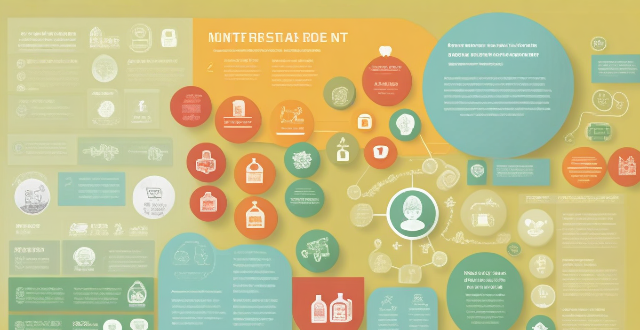
What are the most innovative applications of technology in the healthcare industry ?
The healthcare industry has seen significant advancements due to innovative applications of technology. Telemedicine allows patients remote access to care, reducing travel time and increasing efficiency. Wearable devices track health metrics, promoting healthy habits. AI and machine learning analyze medical data for accurate diagnoses and personalized treatments. Robotic surgery systems enhance precision in minimally invasive procedures. Blockchain technology secures sensitive medical data sharing among providers.